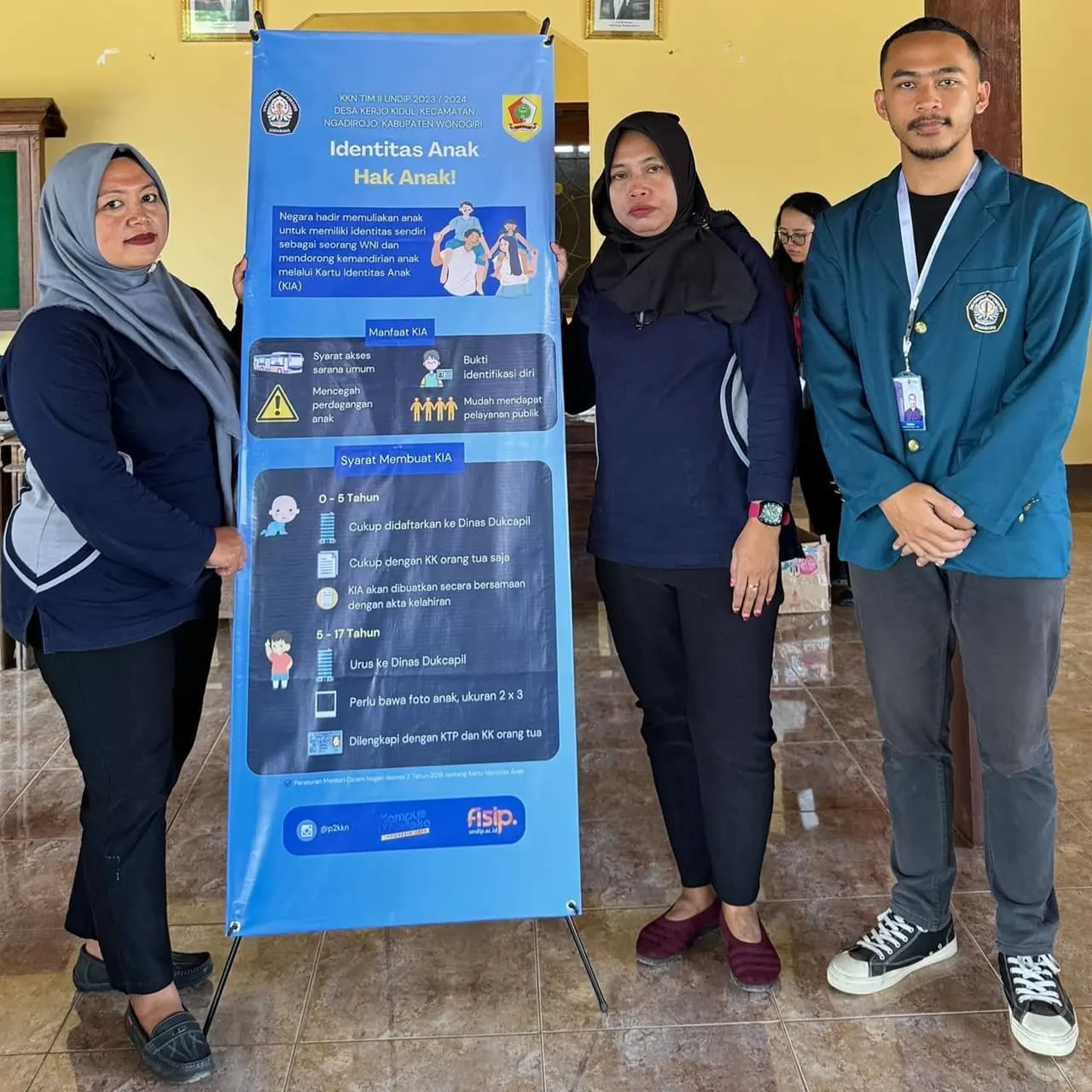Wonogiri (July 27, 2024) – In this rapidly advancing digital era, it is crucial for every individual to have officially recorded identification, including children. However, many parents still fail to recognize the importance of the Child Identity Card (KIA). Addressing this issue, students from Diponegoro University’s Community Service Program (KKN) initiated an educational program for PKK cadres in Kerjo Kidul Village, Wonogiri, on July 27, 2024. Held at the Kerjo Kidul Village Hall, the event aimed to raise public awareness about the benefits of KIA for children and the nation’s future.
KIA: More Than Just a Card
KIA is more than just a piece of plastic. Behind this small card lies a wealth of essential benefits. According to the website of the Directorate General of Population and Civil Registration (dukcapil.kemendagri.go.id), the Director of Population Registration, David Yama, explained that KIA is widely utilized by district and city governments for various purposes, including:
- Supporting children’s rights.
- Meeting school registration requirements.
- Serving as a child’s identification for opening savings accounts, registering for BPJS (health insurance), and more.
Challenges and Obstacles
One major challenge in promoting KIA is the lack of information reaching the public. Many parents remain unaware of its importance, viewing it as a non-essential document. Additionally, geographic and economic factors pose further hurdles, especially in rural areas.
Breaking Barriers Through Education
During the KKN activity, students educated PKK cadres on the importance of KIA, the procedures for obtaining it, and its benefits for children. One of the KKN UNDIP students, Faizal Achmad, expressed hope that this program would benefit the people of Kerjo Kidul Village.
“I hope this program increases public awareness in Kerjo Kidul Village about the importance of KIA so that all children can be registered and receive their rights optimally. In doing so, we contribute to creating a quality young generation,” Faizal said.
The students also conducted KIA-making simulations and answered various questions from the participants.
PKK Cadres: Agents of Change
PKK cadres play a strategic role in promoting KIA at the community level. Equipped with the knowledge gained from the KKN program, these cadres are expected to become agents of change in their respective environments. They can provide accurate information about KIA and encourage parents to process KIA for their children promptly.
Next Steps
This educational activity is a promising start. However, much work remains. There needs to be stronger collaboration between the government, educational institutions, and communities to accelerate the universalization of KIA. Continuous KIA promotion using diverse and engaging media and methods is also essential.
Conclusion
KIA is an investment in children’s future. With KIA, children are better protected and have easier access to various public services. Through the KKN activity in Kerjo Kidul Village, public awareness about KIA’s importance is expected to grow. Let us work together to build a better Indonesia by providing the best protection for our children.




